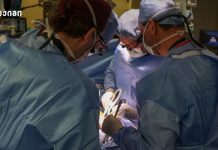Antibiotic Resistance: A Global Crisis Threatening Healthcare in Georgia
As the world confronts various health challenges, one silent threat continues to grow: antibiotic resistance. This global health crisis, largely driven by the misuse and overuse of antibiotics, is undermining modern medicine’s most powerful tools. The implications are serious not only for global health but also for Georgia, where healthcare leaders are working urgently to tackle this issue and improve healthcare standards through international hospital accreditation.
For decades, antibiotics have been central to healthcare, revolutionizing the treatment of bacterial infections and saving millions of lives. However, as bacteria evolve to resist these drugs, routine medical procedures like surgeries and childbirth could become dangerous. Without effective antibiotics, even minor infections could once again prove fatal, reversing much of the progress made in modern medicine.
A Global Setback and a National Concern
Recent reports underscore the alarming escalation of antibiotic resistance worldwide, warning of an imminent setback in the fight against infectious diseases. More than 700,000 people die annually from drug-resistant infections—a number expected to rise unless immediate action is taken. In Georgia, healthcare leaders are increasingly aware of the urgent need to address this growing crisis on a national scale.
Professor Giorgi Pkhakadze, Chair of the Public Health Institute of Georgia (PHIG), stresses the importance of urgent action:
“Antibiotic resistance is not just a problem for the global community—it poses a direct threat to the health and well-being of the Georgian population. We cannot afford to let this crisis escalate. It is crucial that we strengthen regulations and ensure antibiotics are used responsibly within our healthcare system.”
Pkhakadze also points out the specific challenges facing Georgia:
“Here in Georgia, we’ve seen overprescription of antibiotics and their misuse in agriculture, both of which contribute to growing resistance. If we don’t address these issues now, we risk compromising the future of our healthcare system.”
Improving Healthcare Quality and Accreditation in Georgia
Georgia’s healthcare system is already under significant pressure to meet international standards, and the rise of antibiotic resistance only intensifies this challenge. In response, the government and healthcare institutions are working to improve healthcare quality and pursue international accreditation through organizations like Accreditation Canada International (ACI) and Joint Commission International (JCI). Such accreditation ensures that hospitals operate according to global best practices, a key element in the fight against antibiotic resistance.
Professor Pkhakadze emphasizes the value of international accreditation:
“Accreditation by international bodies like Accreditation Canada and JCI is crucial for improving healthcare quality in Georgia. Accreditation raises standards, promotes patient safety, and encourages responsible use of antibiotics, all of which are essential in combating antibiotic resistance.”
Internationally accredited hospitals in Georgia are required to implement antimicrobial stewardship programs, which ensure that antibiotics are prescribed only when necessary. This is critical in curbing the overuse and misuse of antibiotics that contribute to resistance.
“The accreditation process has prompted Georgian hospitals to adopt better practices in infection control and responsible medication use,” Pkhakadze explains. “This is a key strategy for preventing the spread of antibiotic resistance and protecting both healthcare workers and patients from drug-resistant infections.”
Economic and Health Consequences
The consequences of antibiotic resistance extend beyond public health and have serious economic implications. Globally, the cost of drug-resistant infections is estimated to reach $100 trillion by 2050, according to the World Bank. For Georgia, where healthcare resources are limited, the impact of antibiotic resistance could place an even greater burden on the economy.
“Antibiotic resistance isn’t just a health issue; it’s an economic one,” says Pkhakadze. “Treating drug-resistant infections is far more expensive than treating common infections. The financial burden on our healthcare system could be immense if we fail to act now. By investing in solutions today, we can avoid far higher costs in the future.”
Developing countries like Georgia are particularly vulnerable, as they often lack the infrastructure to track and treat resistant infections. Strengthening healthcare infrastructure, especially in rural areas, is critical to controlling the spread of resistance and ensuring equal access to quality care for all citizens.
Solutions for Georgia’s Healthcare System
Globally, efforts to combat antibiotic resistance include several key strategies, all of which are relevant to Georgia:
- Antimicrobial Stewardship Programs: These programs ensure antibiotics are prescribed appropriately and sparingly. Accredited hospitals in Georgia are leading the way in implementing these programs, which are crucial to reducing antibiotic misuse across the healthcare system.
- Public Awareness Campaigns: Educating the public on the responsible use of antibiotics is essential. Many people in Georgia mistakenly believe antibiotics can cure viral infections, such as the common cold. Public health campaigns, led by healthcare professionals like Professor Pkhakadze, aim to correct these misconceptions and encourage responsible use.
- Healthcare Infrastructure Investment: Strengthening healthcare systems and expanding access to quality care, particularly in rural regions, will improve Georgia’s ability to track, prevent, and treat resistant infections. International accreditation plays a vital role in this effort by enforcing stringent standards for infection control and patient care.
- Regulating Antibiotic Use in Agriculture: Addressing the misuse of antibiotics in livestock farming is another critical step. Many countries, including Georgia, are working to implement stricter regulations to limit antibiotic use in agriculture and prevent resistance from developing in food chains.
Georgia’s Role in Global Health
While antibiotic resistance is a global issue, Georgia is uniquely positioned to set an example by improving healthcare quality and ensuring its hospitals meet international standards. The Public Health Institute of Georgia, under the leadership of Professor Pkhakadze, is playing an active role in raising awareness, advocating for better policies, and helping to guide hospitals through the accreditation process.
“Antibiotic resistance is a global crisis, but Georgia has the opportunity to be part of the solution,” says Pkhakadze. “By ensuring our healthcare system operates at the highest standards, we can protect our citizens and contribute to the worldwide effort to combat antibiotic resistance. The accreditation of our hospitals by international bodies is a critical step in this process.”
Conclusion
Antibiotic resistance is one of the most urgent health threats facing the world today, and Georgia is no exception. The stakes are high—without effective antibiotics, even routine infections could once again become life-threatening. Professor Giorgi Pkhakadze’s insights highlight the need for a comprehensive approach in Georgia that includes healthcare quality improvements, public education, and international hospital accreditation to address this growing crisis.
“Antibiotic resistance is not something we can afford to ignore,” Pkhakadze concludes. “The time to act is now. By improving the quality of healthcare in Georgia and ensuring our hospitals meet international standards, we can protect our population and help lead the fight against this global health threat.”
With proactive measures, improved healthcare systems, and international cooperation, Georgia can rise to the challenge of antibiotic resistance and secure a healthier future for its citizens and the global community.





